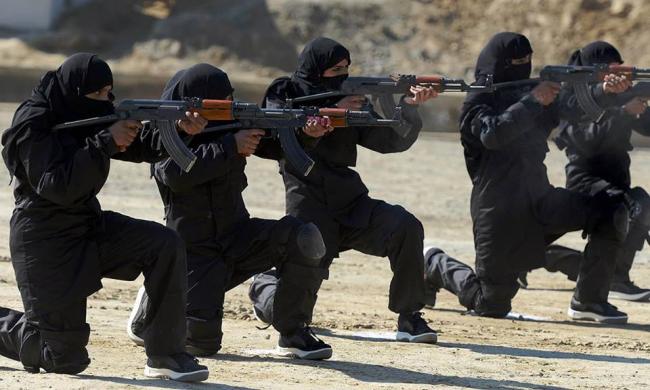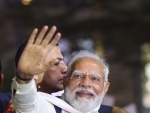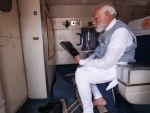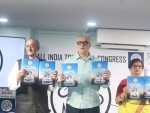
Pakistan: Sisyphean Gains
The next day, on June 14, another two 'commanders', along with 47 militants from banned Baloch insurgent groups, laid down their arms and renounced violence in the presence of Balochistan Home Minister Sarfraz Bugti at Quetta. The two commanders, Madina Marri and Shikari Marri, were affiliated with the Baloch Liberation Army (BLA) and United Baloch Army (UBA), respectively.
In the other parts of the country, where the Army Operation Khyber-1 had been going on since October 16, 2014, 39 militants belonging to Lashkar-e-Islam (LI) had surrendered to Security Forces (SFs) on November 14, 2014. The Amy launched the offensive with air strikes against LI hideouts in the areas of Tirah Valley and Bara tehsil(revenue unit) controlled by militant 'commander' Mangal Bagh.
On November 10, 2014, three key LI 'commanders' surrendered to authorities in the Khyber Agency. Official sources claimed that the newly appointed 'spokesman' of LI, Saifullah Saif, Commander Ilyas and Commander Wajid, announced that they were leaving LI and surrendered. Saifullah Saif belongs to the Qambar Khel tribe, Ilyas to the Sipah area, while Commander Wajid is from the Malik Din Khel tribe.
Further, 30 terrorists, including LI 'commanders', surrendered to the authorities in Baratehsil of the Khyber Agency on November 5, 2014. Sources indicated that 'commander' Kandahar, the chief of his own militant group of Zakhakhel tribe, had surrendered along with dozens of his companions in the Agency. Kandahar and his companions laid down arms and vowed not to challenge the writ of the State.
In addition, 50 militants including important 'commanders' surrendered to the SFs under operation Khyber-I in the Bara tehsil of Khyber Agency in FATA on October 19, 2014. According to a December 6, 2014, statement by Inter-Services Public Relations (ISPR) spokesman Major General Asim Saleem Bajwa, more than 400 militants in Khyber Agency had surrendered to SFs during Operation Khyber-I.
These surrenders, however, are insignificant, and account for a very tiny proportion of active militants across the country. Moreover, the surrender process remains flawed, as was evident on January 17, 2015, when, hardly a week after renouncing violence (on January 10, 2015) and agreeing to cooperate with the political administration of Khyber Agency in the ongoing military operation, 50 hardcore terrorists of the Amr Bil Maroof wa Nahi anil Munkir (Suppression of Vice and the Promotion of Virtue), led by Commanders Haya Khan and Waheed Khan, revolted against the ceasefire and deal with the local political administration, and joined the Pakistan chapter of the Islamic State (IS).
Similarly, despite renouncing his activities against the Pakistani state, Asmatullah Muawiya, the head of the Tehrik-i-Taliban Pakistan (TTP) Punjab Chapter (also known as Punjabi Taliban), announced on September 13, 2014, that his faction would devote its resources to fighting NATO forces in Afghanistan. A TTP video explained elaborated that Muawiya would devote his resources to fighting NATO forces in Afghanistan, and would engage in 'Da'wah and Tableeghi' [preaching] in Pakistan.
On November 10, 2014, Khyber Agency Political Agent Shahab Ali Shah had stated that the security of militants who surrendered during Operation Khyber-I was the Government's responsibility, and that the Government would provide security to militants and members of banned outfits who surrendered. This is significant in view of the fact that surrendered militants are under rising threat from active TTP and other terrorist/militant formations, who are pressuring them to rejoin their movements or face reprisals. For instance, on October 20, 2014, LI claimed to have established full control over the Tirah Valley and Bara tehsil of Khyber Agency, and declared that those who had surrendered to the Government would never be forgiven, and would have to face the consequences.
There is, moreover, currently no consistent policy or legal framework for rehabilitation of surrendered terrorists and militants, and no coherent 'surrender package' The Swat Initiative, one of at least two pilot programs that aimed to rehabilitate militants captured by security forces, sought to cater to three groups: juveniles, adults and family members. The Islamabad based Pakistan Institute for Peace Studies (PIPS) in its Security Report 2011, noted that the PKR 4.4 million allocated for the two programs had failed to adequately budget for the rehabilitation of detained militants.
Though a de-radicalization program is envisaged in the National Internal Security Policy of Pakistan (NISP) 2014-18, nearly seven months on since its unveiling, there has been no significant initiative for its implementation. Separately, however, the "Sabwoon Rehabilitation Center" was established by the Pakistan Army with the support of the Hum Pakistani Foundation and UNICEF in 2009, to rehabilitate militants, mostly juveniles, apprehended during the operation. Though no current information regarding the 'success' of this initiative is available, according to a May 20, 2012, report, some 107 of 177 surrendered militants had been rehabilitated under this programme.
Meanwhile, on June 26 2015, Balochistan authorities announced a general amnesty plan for all Baloch insurgents fighting locally, who were willing to renounce violence and lay down their arms. The amnesty plan was unveiled at the end of a meeting of the provincial apex committee, headed by Balochistan Chief Minister Dr. Abdul Malik Baloch. The meeting was convened to review progress on the implementation of the National Action Plan. It was agreed in the meeting that a "peaceful, conciliatory Balochistan policy will be implemented so that the youngsters who want to lay down arms and join the mainstream can be granted amnesty and be encouraged to rehabilitate themselves". Under the scheme, small-time fighters will be paid PKR 500,000. Mid-level commanders will get PKR 1 million while top commanders will be paid PKR 1.5 million if they surrender.
Pakistan is now pursuing the 'two pronged strategy' of escalating counterterrorism and counterinsurgency operations, on the one hand, and incentives for militants to relinquish the path of violence, on the other. While the strategy will create some short term gains, these are likely to remain cosmetic, as long as the deeper dynamic of state backed radicalization and the instrumentalisation of Islamism for domestic political management and strategic projection abroad is not addressed. Further, the legitimate demands of ethnic minorities continue to be ignored, even as their marginalization and targeting by state agencies and proxies continues. Despite the trickle of surrenders and the transient 'military victories' that are periodically announced, consequently, it is unlikely that Pakistan is approaching any lasting era of peace.
Support Our Journalism
We cannot do without you.. your contribution supports unbiased journalism
IBNS is not driven by any ism- not wokeism, not racism, not skewed secularism, not hyper right-wing or left liberal ideals, nor by any hardline religious beliefs or hyper nationalism. We want to serve you good old objective news, as they are. We do not judge or preach. We let people decide for themselves. We only try to present factual and well-sourced news.







